|
Here's how to create ballpark prices for proofreading and copyediting using Excel.
There have been some interesting discussions about pricing models in the online editorial community recently.
If you prefer a per-word model, then you may like to consider using a progressive-pricing array formula. It’s not the only way of doing things, certainly, but it’s something I’ve tested and am currently working with. I like this model because it incorporates economies of scale. Before I explain how the progressive-pricing array works, a very quick word on price presentation versus determination. Price presentation versus determination Price presentation and determination are two different things.
Economies of scale When a proofreader is working on larger projects, there are economies of scale. I’m currently working with an independent fiction author on nine books (which I’m proofreading over a five-month period). Most of the projects are between 70,000 and 80,000 words in length; a couple are around the 50,000-word mark; and one is a short story with just over 10,000 words. All of the books feature the same central protagonist and a small cast of supporting characters. The serial nature of the content, the reappearance of key characters, and the concentration of action in predominantly one fictitious location all serve to save me time as I move through each book. This means:
Even so, the average number of words proofread per hour was fewer for the 10K-word short story than for the previous 70K-word novel. And in the first few hours of working on the the 70K-word novel, I proofread fewer words per hour than was the case in the hours that followed. That’s because, even with all the benefits of working on a series, each book still needs a certain amount of ‘stuff’ done to it in its own right:
If we take the series element out of the equation, and compare the proofreading of two books in a similar genre for two separate authors, the impact of project length for the proofreader can become even more stark. Consequently, I want to price the 30K-word novella differently from the 100K-word tome. It’s for this reason that while I like to build my quotations on a per-word basis, I don’t want something as straightforward as a £6, £8 or £10 per 1,000 words model. Instead, I want something that respects the economies of scale that come with larger projects. This is where the array comes into its own. How does a progressive-pricing array formula work? An array formula can look at a number (a word count, in our case) and then, based on a set of ranges that we’ve provided, price those ranges accordingly. Here’s a very basic example. You might set up your array such that the following are true:
This would result in the following quotes: (1) If you were asked to provide a quotation for proofreading a 2,000-word article, the price would be £50 (£25 per 1000 words). (2) If you were asked to quote for a 10,000-word short story, the price would be £175. This is based on:
The average price per 1,000 words works out at £17.50. (3) If you were asked to quote for a 70,000-word book, the price would be £575. This is based on:
The average price per 1,000 words works out at £8.21 and reflects the economies of scale that the proofreader will be able to benefit from because of the size of the book. A progressive-pricing array formula in action I’ll admit that it did take some fiddling to get the actual formula working for me. I used this as my template: ‘Progressive Pricing Formulas For Excel’ (www.cpearson.com). The example given is similar to the setup I wanted for my own quotation tool, and it provides a formula that I was able to tweak for my own data. See also my downloadable sample below. Here's a screen shot of what a progressive-pricing array formula might look like in Excel.
And here's an Excel template you can download and adapt to suit your own preferences. Note that you'll need to look carefully at, and amend, the array-formula box to ensure that the cell descriptions are correct for your data (that's the fiddly bit!).
One size doesn’t fit all
The usual caveat applies – my way certainly isn’t the best way or the only way! It’s just one approach of several. I wanted to share my experience with you so that if you fancy testing a progressive-pricing array, you have a framework to get you started. In practice, you might want to build more ranges into your array formula to provide increased flexibility. The numbers I’ve used above are just for illustrative purposes. I find the array formula useful for ballpark quotations because I want to provide a quick quote based on a word count. Obviously, any professional proofreading project needs to be evaluated on more than just a word count before terms are agreed and confirmed. Those editorial professionals working with complex projects that require varying levels of intervention might find a progressive-pricing array formula far too limiting. It functions well for me as a proofreader because of the nature of my work. I do, however, have different arrays set up for different client types (e.g. students for whom English is a second language; independent authors whose first language is English) and for different levels of proofreading service. The prices I assign to the various ranges are different in order to reflect the variances in how I work with the text and the speed at which I am able to proofread. How do you build a price for editorial work? How do you build your quotations? Per hour, per word, per day, per project? Have you tested different approaches for building your fees? And do you find that different models work better for different types of editorial work? I’m always interested in learning how others go about pricing editorial work so please do leave a comment if you have something to share. UPDATE (August 2020): For more help with fees, take a look at my guide How to Develop a Pricing Strategy.
Louise Harnby is a line editor, copyeditor and proofreader who specializes in working with crime, mystery, suspense and thriller writers.
She is an Advanced Professional Member of the Chartered Institute of Editing and Proofreading (CIEP), a member of ACES, a Partner Member of The Alliance of Independent Authors (ALLi), and co-hosts The Editing Podcast. Visit her business website at Louise Harnby | Fiction Editor & Proofreader, say hello on Twitter at @LouiseHarnby, connect via Facebook and LinkedIn, and check out her books and courses.
7 Comments
Here's an overview of just some of the resources available to writers in Norfolk (and East Anglia more broadly). It's quite a treasure trove, but perhaps that's not a surprise given that in 2012 Norwich became England's first UNESCO City of Literature.
Festivals and events
Groups and organizations
Courses
Editorial support: proofreading, editing and indexing If you are looking for an editorial professional in Norfolk, you can find a qualified member by visiting the Norfolk Proofreaders and Editors Network (NPEN). Members offer a wide range of services including proofreading, copy-editing, structural and developmental editing, manuscript critique and evaluation, indexing, formatting, translation, and publishing consultancy. Independent publishers
Louise's Writing Library for Self-Publishers For more self-publishing resources, visit the library on my Self-publishers page.
Louise Harnby is a fiction copyeditor and proofreader. She curates The Proofreader's Parlour and is the author of several books on business planning and marketing for editors and proofreaders.
Visit her business website at Louise Harnby | Proofreader & Copyeditor, say hello on Twitter at @LouiseHarnby, or connect via Facebook and LinkedIn. If you're an author, you might like to visit Louise’s Writing Library to access my latest self-publishing resources, all of which are free and available instantly. A note from Louise: In 2013, I published my first book – an introductory editorial business-planning guide entitled Business Planning for Editorial Freelancers. I wanted to provide readers with a real-world view of what it’s like to enter the world of editorial freelancing. Three of my colleagues were kind enough to act as case studies, sharing insights into their experiences of building an editorial business: Johanna Robinson, Mary McCauley and Grace Wilson. At the time of publication, all three were relatively new to the field (their start-ups were under two years old). Each of them created vibrant, successful editorial businesses, working with a range of clients across the UK and Ireland. Their candid accounts illustrated the challenges of editorial freelancing – but also suggested how the path to success could be achieved through determination, skills acquisition, strategic planning and targeted marketing. Here we are three years later in 2016. My colleagues left behind their new-starter status a long time ago. They’re now established editorial business owners who are not only working for paying clients but also helping less experienced colleagues navigate their way through the world of editorial freelancing via training programmes and conference presentations. It’s therefore with great pleasure that I hand now you over to Mary McCauley of Mary McCauley Proofreading. Below, Mary tells us what’s changed and what’s stayed the same; how her business has developed; what she’s learned; and what her plans are for the future … It’s nearly four years since I first wrote a guest article for The Proofreader’s Parlour on how I set up my editorial business, and subsequently appeared as a case study in Louise’s debut book Business Planning for Editorial Freelancers. It feels like a lifetime ago; back in December 2012, I never imagined how my editorial journey would continue. Thankfully, it has been a good four years for me. What has and hasn’t changed since I started out in 2012 Business hours I have moved to full-time hours and my work schedule has been more or less fully booked up for the past two years. However, I no longer regularly work weekends unless I have agreed a premium rate with my client. As for most people setting up a business, the early years involved long hours of work and weeks without a break. This worked for a while, but I learned that I cannot work that way indefinitely; I need regular time away from my desk or I can’t do my best work. And as my turnover has increased year on year as my business grows, I’m now able to take proper holidays at Christmas and during the summer. Services offered When I started out in 2012, my main service offering was proofreading and a little copy-editing; now copy-editing work has overtaken proofreading. I also offer some project management services (including liaison with typesetters, designers and illustrators; picture research; and artwork coordination), as well as e-book conversion review services. Additionally, I’ve become involved in training delivery. In June 2014, I was invited to present an editing masterclass for fiction authors at our local Wexford Literary Festival. Not long after, I presented a Marketing Tools for the Freelance Editor seminar at the 2014 SfEP conference and, while it was a daunting but exhilarating experience, I learned a lot from it. Last year I was approached by Irish writer and lecturer Claire Keegan to teach a two-day course on grammar, punctuation and style to her students. It went well and we ran the course again earlier this year. The Wexford Literary Festival invited me back this summer as a panel member for an Industry Experts Q&A discussion and I’m also a regular guest speaker on my Local Enterprise Office’s Start Your Own Business course. More recently, I’m signed up as a speed mentor at this year’s SfEP conference. So through contacts and referrals I’ve slowly gained experience in editorial and editorial-business training, and I’m interested in how I might further develop it as a business offering. My clients At the start, I cast my net wide in search of clients – anything to get experience. I have since narrowed down my client base. On the fiction side, the majority of my work is for independent authors. Not all of these wish to self-publish; some are preparing their manuscript for submission to an agent, publisher or competition. On the non-fiction side, while I also work with independent authors, the majority of my clients are businesses, public sector bodies and publishers. Due to schedule constraints and short turnaround times, for the moment I no longer work for students. Continuing professional development (CPD) Investing in quality training has been a priority for me over the past four years and my short-term aim is to continue to invest in learning new skills in a bid to expand the range of services I offer. I’ve completed six editorial courses (SfEP/PTC/Publishing Ireland) since 2012. Each has directly helped pay for itself; for example, the SfEP’s On-screen Editing 1 helped me work more efficiently and thus earn a better rate, while the Publishing Training Centre’s (PTC) Rewriting and Substantive Editing course gave me the confidence to take on an well-paid editing project I otherwise wouldn’t have. Recently, AFEPI Ireland members have been able to take advantage of the PTC courses now running at the Irish Writers Centre in Dublin. Ireland-based editors can now avail themselves of these without travelling to the UK as many would have done in the past. The courses also have the added benefit of presenting an opportunity for freelance and in-house editors to meet. I regularly learn new ideas and tips from the AFEPI Ireland/SfEP/EAE forums and save shared links for future reference. I find these forums an invaluable source of CPD. Professional membership and networking Though it is one of my larger yearly expenses, I value my membership of both AFEPI Ireland and SfEP. The support of Irish and UK colleagues, and colleagues further afield, has been one of the most warming experiences of setting up my business. Catching up with AFEPI Ireland friends and colleagues at meetings and training courses in Ireland has been wonderful and energising, and I always come away having learned something. Attending the 2014 SfEP conference in London was an unforgettable experience and I finally understood what ‘finding your tribe’ means. Marketing I joined Twitter in 2012 and continue to find it a useful learning platform that has helped me meet and interact with publishing professionals in Ireland and abroad. When I receive business enquiries I always ask how the person found me, as I need to know which of my marketing efforts are working. The majority of my enquiries come via my website, which enquirers say they found following a Google search. My website’s probably due an overhaul but I’m pleased with how it has worked for me. I also started my own blog, Letters from an Irish Editor, at the start of 2014. I admit I really struggle to find the time to post regularly (it takes me several hours to write a single article!) but as there is always increased traffic to my website when I do, I’ll battle on. When I upgraded to Professional Member status, I took out an entry in the SfEP Directory and I’ve seen some enquiries and work from this direction. After my website, most enquiries come via my AFEPI Ireland Directory entry and from referrals from colleagues. I think my AFEPI Ireland entry is more successful than my SfEP one due to my location, both in terms of my Irish clients preferring an Ireland-based service, but also from a currency point of view. I have had a listing on Find A Proofreader since 2012; as well as receiving the regular job postings I’ve also had direct enquiries and work from it. While a lot of the jobs have too short a turnaround time for my schedule, my entry helps with my website SEO, so at the current advertising rate I find it’s worth the cost. What I’ve learned since 2012 While I’ve continued to work extremely hard to grow my business and client base, the most important thing I’ve learned is to recognise valuable clients and to pursue a client base that offers me the best rates and projects. As I’ve gained experience and undertaken additional training, I’ve become more confident in my editorial and business abilities and in the worth of my service offering when quoting to clients. I’ve come to realise that some clients cannot afford or are unwilling to pay for my services and that if I clog up my schedule with low-paying projects, I won’t have the capacity to work on a more desirable project when it presents itself. Keys to success The following are key ideas/values that I believed in and tried to pursue from the start and which have proven invaluable to my business during the past four years:
Personal highlights of the past four years
Plans for the future
Mary McCauley runs an editorial business providing project management, copy-editing and proofreading services to authors, publishers, corporate clients and public sector bodies. She is a Full Member of the Association of Freelance Editors, Proofreaders and Indexers (AFEPI Ireland) and a Professional Member of SfEP. She has taught self-editing courses as part of the Claire Keegan Fiction Clinic series, and has presented seminars at the Wexford Literary Festival and the SfEP’s 2014 conference. She is a regular guest speaker on her Local Enterprise Office’s Start Your Own Business course. Mary lives near Wexford in the south-east of Ireland. You can contact Mary at [email protected], through her website Mary McCauley Proofreading, or via LinkedIn, Twitter, Facebook and Google+.
In this two-part series, I take a look at how regular business promotion can put us in a position to decline work that doesn't meet our expectations and aspirations.
So you’re a copy-editor, and one of the clients you’ve been working for over the past seven years has, yet again, failed to increase their hourly rate. You’re worse off in real terms than you were last year, let alone in 2009. Ugh.
Or perhaps you’re a proofreader who’s paid on a flat-fee basis by another publisher. The fee is based on the number of pages per book. Over the past six months, you’ve noticed that the typesetter has been squeezing another 100 words on a page by reducing the font size. Over the course of a 250-page book, this amounts to you having to proofread an additional 25,000 words for no extra cash. Given that you proofread for this client at a speed of around 5,000 words per hour, that’s an extra five hours of work that you’re no longer being paid for. Ouch. A self-publishing romance writer tries to haggle you down to £4 per 1,000 words for a 100,000-word book. She wants the fee to include a copy-edit AND a ‘quick follow-up proofread’. She feels that your fee of £9 per 1,000 words is way too high and out of line with what other editors are charging. You thought you were giving her a fabulous deal, given that she’s getting two different and separate editorial passes from you for £900! Headdesk. A PM agency with whom you’ve worked in the past asks you to do a top and tail of a PDF with some Q&As. They also want a basic howler check and a layout review. It’s a sort of semi-proofread. There will be other similar jobs over the forthcoming weeks. They estimate that each job will take two hours. They offer you a flat fee of thirty quid for each job. £15 an hour for your level of experience? Sob. So what can you do?
Holy moly, you say, this editorial freelancing lark is becoming a joke. Negotiating If you have regular clients who are offering, say, complex projects worth several thousands of pounds, it may, indeed, be well worth your while to enter into extensive negotiations so that it’s clear to the client why what they’re offering is unrealistic and unacceptable. The time you spend on these negotiations could turn out to be worth the investment if you can find some acceptable middle ground. If, however, you’re dealing with projects worth a couple of hundred quid or less, negotiating may not necessarily be the best use of your time. Instead, you could use it to find new, better-paying clients. Speed How about working more efficiently, using tools such as macros? If you’re not already using these tools, then introducing them into your workflow could help tip the situation back in your favour. If the client is offering a fixed fee, but with more words per project, speeding up could even increase the amount you earn per hour, never mind maintaining the rate you used to earn. If, however, you’re already macro-magnificent, ReferenceChecker-resplendent, PerfectIt-pretty and wildcard-wonderful, this isn’t going to provide you with a solution. Changing industry policy How about lobbying the industry? You could ask your professional editorial society or freelancing union to step in. But let’s be honest – the mainstream publishing industry is global and consists of hundreds of separate businesses operating under capitalism. It would be a tricky job for the society/union in a command economy, but in a capitalist one? Don’t hold your breath! As for all the other clients – independent authors, businesses, students, charities and schools, for example – they don’t make up a unified industry. Who are you going to lobby? Getting emotional So how about feeling upset, disgruntled, undervalued and disrespected? By all means, go ahead. It won’t change anything, though you might get an extra-big hug from your partner and some sympathetic ‘poor you’s from your best mate. An alternative – wave goodbye What if there was another option, though? How about if you just politely waved goodbye to the project offer that doesn’t meet your financial requirements, confident that you can fill that job slot with something else – something that pays you the rate that you want to earn? After all, you’re not obliged to accept the work. Self-employment obligations and responsibilities Not being obliged to do a particular piece of work for a price set by someone else is one of the joys of successful freelancing and a key element of being self-employed. If you work for a publisher, magazine, charity or school (or any other business you care to name), part of the deal is that you may well have to undertake types of work at times and places that you don’t like and that aren’t convenient, things that are not written into your contract and that, officially, you’re not being paid to do. But you’re an employee and you don’t get to bargain over your salary every time something comes up that requires you to give a little extra for the sake of goodwill and a comfortable appraisal. Your employer is in charge and in control. Perhaps your efforts will be rewarded further down the line – you might be promoted or given a bonus. It’s not guaranteed, though, and you’ll rarely be in a position to force the issue. Being employed often means making do – the benefit is that, unless you’re on some dreadful zero-hours contract, you get paid even on a slow day, or when you’re ill or on holiday. Importantly, your employer will take responsibility for sourcing customers. But me and you? We’re the owners of our businesses and so it’s up to us to do the work we like, at the times we like, for the pay we want. Holidays and sick days don’t pay. We do, however, have the right to decline a job. And because we own our own businesses, it’s not X University Press’s responsibility to pay us a fee that’s good for each of our business models. XUP’s responsibility is to pay us a fee that’s good for its business model. We, and only we, have responsibility for deciding whom we work for and which projects we accept or decline. Importantly, we have to take responsibility for sourcing customers – there’s no one else to do it for us. We’re in charge and in control. That’s where marketing comes in … and in Part II, I take a closer look at the benefits of proactive promotion.
Louise Harnby is a line editor, copyeditor and proofreader who specializes in working with crime, mystery, suspense and thriller writers.
She is an Advanced Professional Member of the Chartered Institute of Editing and Proofreading (CIEP), a member of ACES, a Partner Member of The Alliance of Independent Authors (ALLi), and co-hosts The Editing Podcast. Visit her business website at Louise Harnby | Fiction Editor & Proofreader, say hello on Twitter at @LouiseHarnby, connect via Facebook and LinkedIn, and check out her books and courses. |
BLOG ALERTSIf you'd like me to email you when a new blog post is available, sign up for blog alerts!
TESTIMONIALSDare Rogers'Louise uses her expertise to hone a story until it's razor sharp, while still allowing the author’s voice to remain dominant.'Jeff Carson'I wholeheartedly recommend her services ... Just don’t hire her when I need her.'J B Turner'Sincere thanks for a beautiful and elegant piece of work. First class.'Ayshe Gemedzhy'What makes her stand out and shine is her ability to immerse herself in your story.'Salt Publishing'A million thanks – your mark-up is perfect, as always.'CATEGORIES
All
ARCHIVES
July 2024
|
||||||
|
|
|


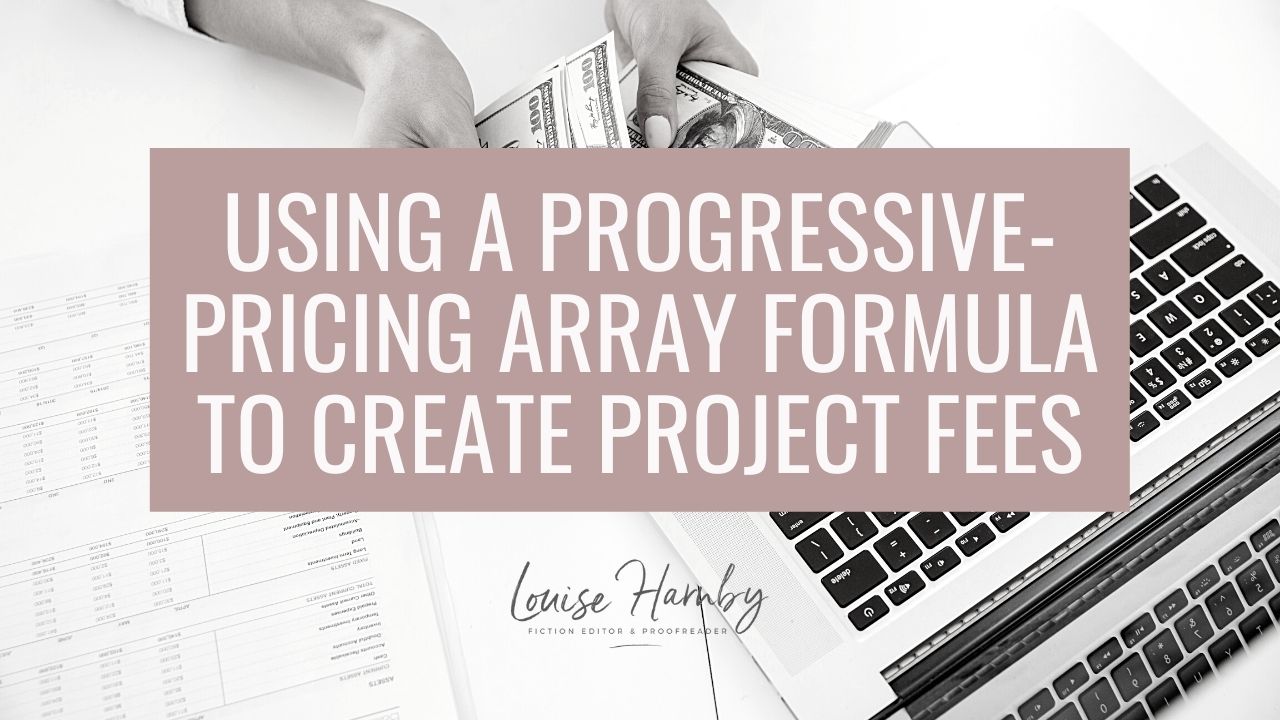
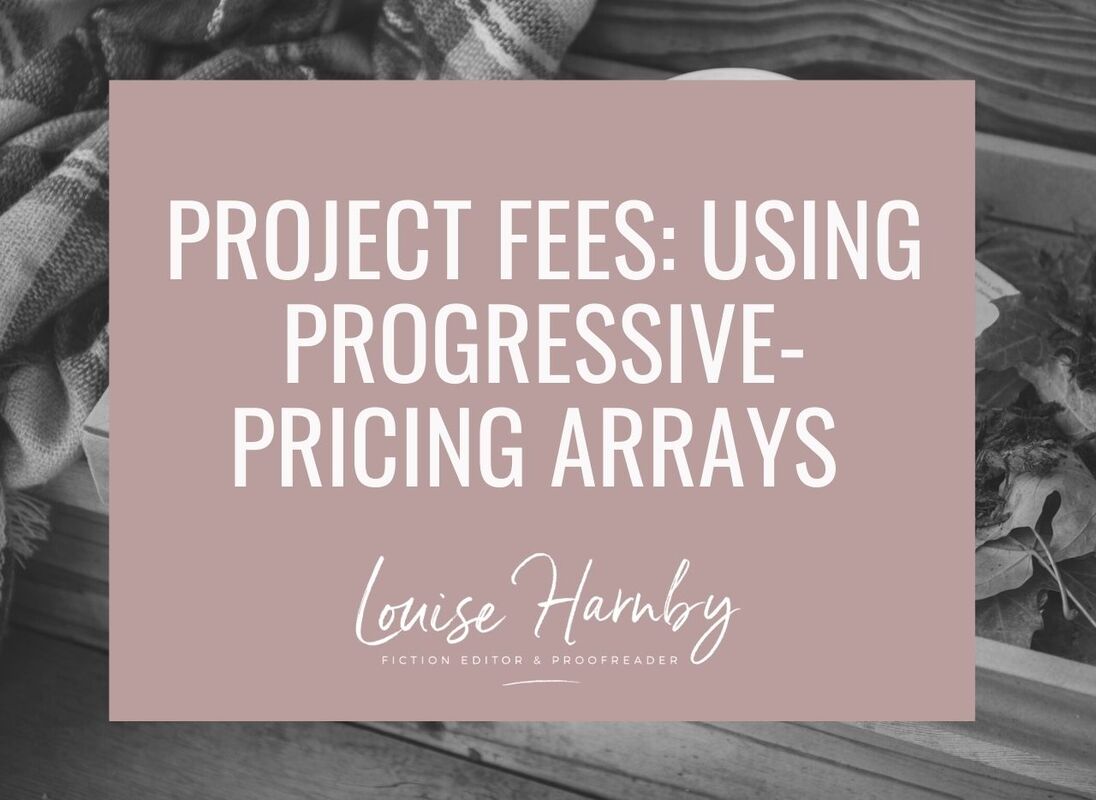
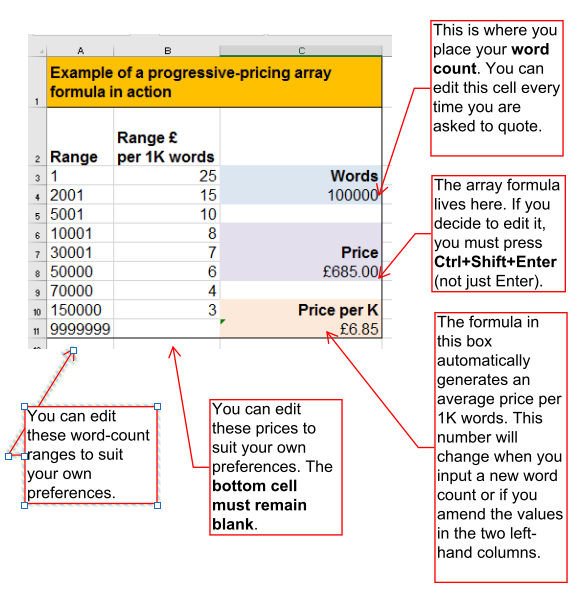
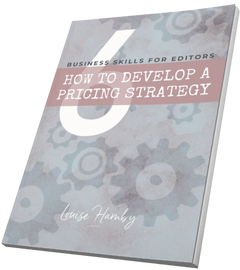
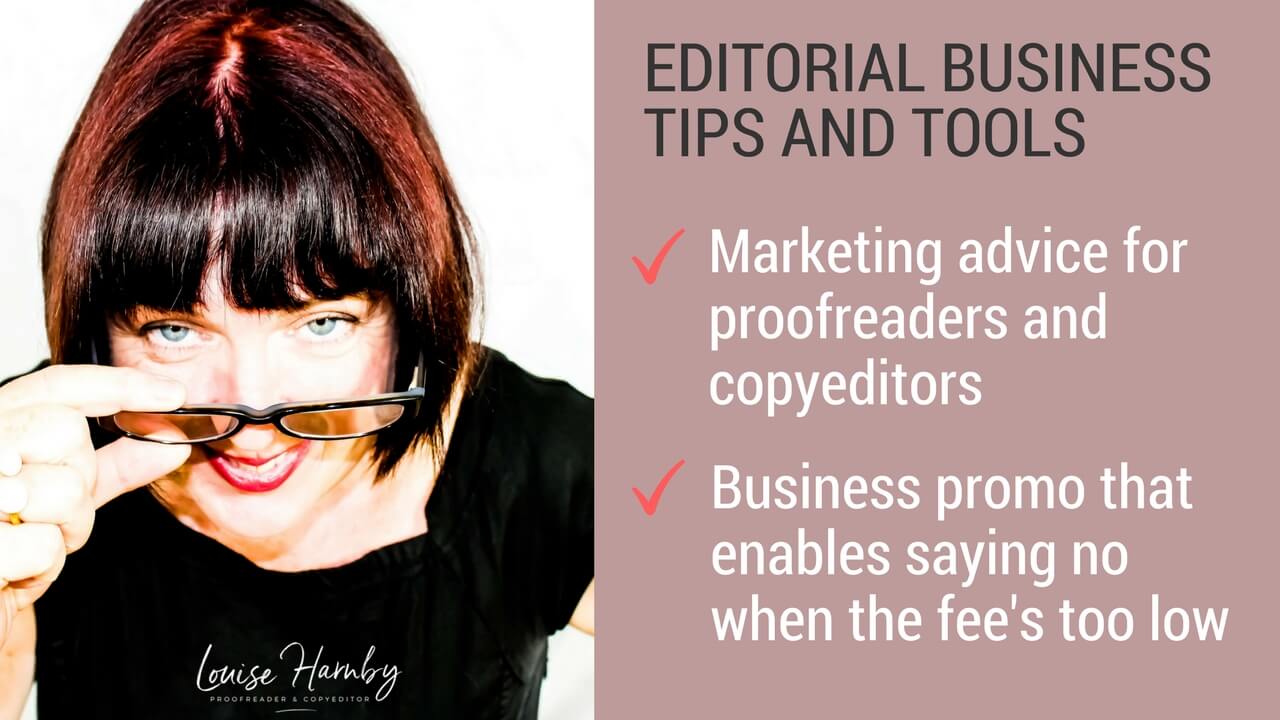
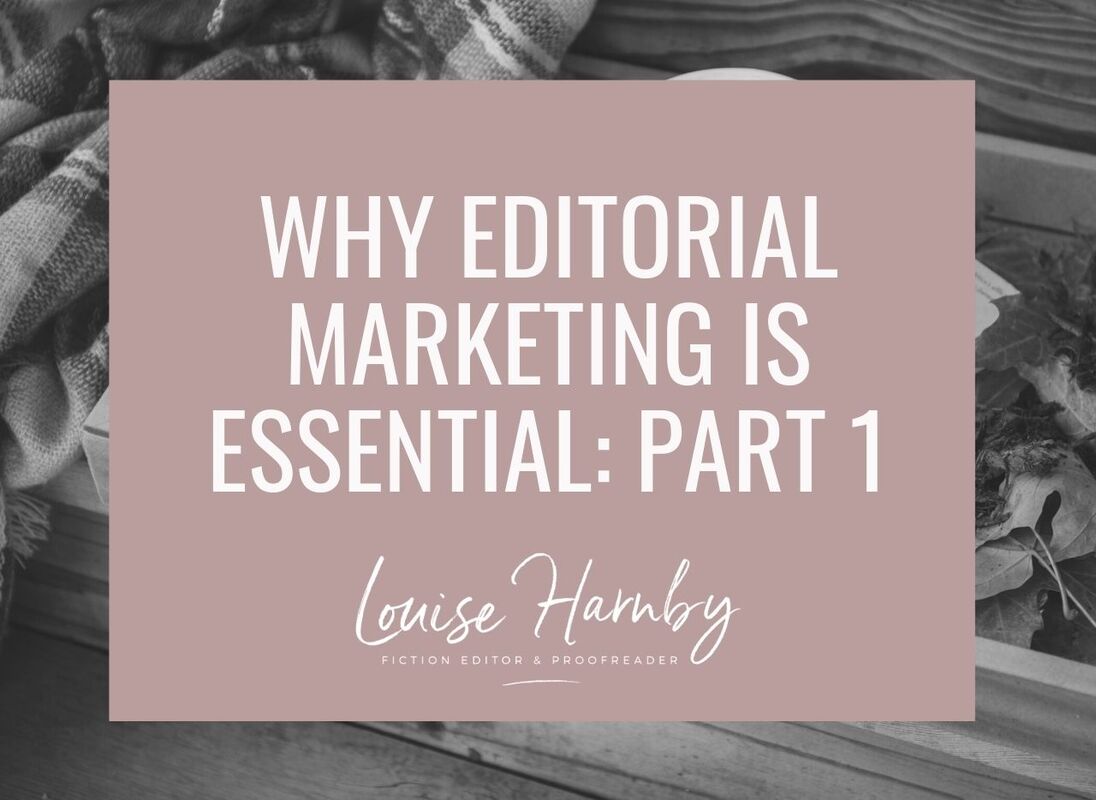













 RSS Feed
RSS Feed





